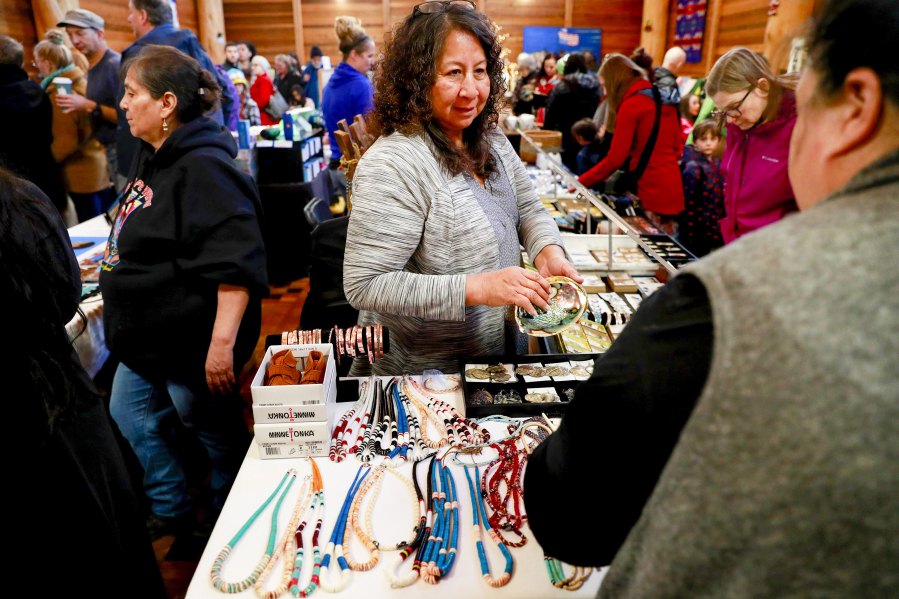SEATTLE — When she was in grade school in the early 1990s, Duwamish tribal council member Desirée Rose Fagan remembers her class wearing colonial-style pilgrim hats to a school assembly for Columbus Day, and learning the myth of Indigenous peoples and pilgrims peacefully gathering for Thanksgiving.
“It was taught to be like ‘kumbaya,’ ” Fagan said. “The pilgrims and Indians shared a meal of their harvest and they were friends.”
Every year for Thanksgiving, her grandmother would host a dinner. Now, Fagan spends the holiday with family, but they don’t celebrate the traditional story of harmonious relations between Native folk and colonial settlers. Instead, they set the table with traditional Native food, focus on family and teach the truth about Thanksgiving.
The Native Art Market at the Duwamish Longhouse and Cultural Center is also on Fagan’s calendar every Thanksgiving weekend. These are a couple of examples of how Seattleites have found personal and public ways to reframe the holiday by centering Native peoples and traditions while rejecting Thanksgiving’s false narrative and the accompanying stereotypes about Native people.



